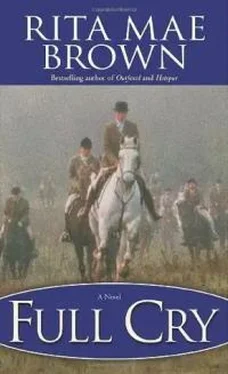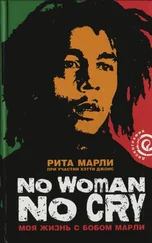A good hound cries, whines, howls when it sees the rest of the pack go to the draw pen. It’s like a quarterback being benched.
Each branch and bough, the sunken lane, the top of the ridge, sparkled with a million tiny rainbows as the sun rose. First the snows were blue, then pink, then orange to scarlet, and finally white, with the rainbows dazzling everyone.
Athena, wings close to her body, dozed in a blue spruce. Her nest wasn’t far, but she didn’t feel like going inside just yet. She opened one golden eye, peering down at the hounds and humans, then she closed it. Athena, over two feet high, occasionally worked with the foxes. As they flushed game on the ground, she’d swoop down and snatch up a mouse. She would sometimes tell the groundlings where mice, rabbits, and other creatures moved about. She didn’t make a habit of it, though. She preferred working alone.
Sometimes Bitsy, the little screech owl, now residing in Sister’s barn, flew alongside her. Athena could tolerate Bitsy only until she let out one of her hideous screeches, which the little bird thought so melodious. Tin ear.
Cora caught a whiff of Athena. No point mentioning it. Owl wasn’t game. And it wouldn’t do to get on the bad side of Athena.
They walked a mile west, then turned back. The return was easier since they didn’t have to break snow.
Asa moved up alongside Delia. “What do you think?”
“They need us,” she answered. “If Sister and Shaker put in too many of the T litter, they’ll be toast. Those young’uns haven’t settled yet.”
On hearing this, Trident couldn’t help but protest. “We’ve done really, really good.”
“Oh? I recall during cubbing that you wanted to track a skunk.” Asa chuckled.
“No fair. My first real hunt.” Trident, handsome, with unusually light eyes, didn’t appreciate the reminder.
The other hounds giggled.
“They love the snow,” Betty said, smiling, upon hearing the low chatter among the pack.
“That they do. Much rather be out in this than those hot September mornings,” Sybil agreed.
“I start at seven, and it’s boiling by eight.” Sister, on the front left corner, chimed in.
“Summer in Virginia can stretch into November sometimes,” Shaker said.
“Not this year.” Betty laughed. “I can’t remember this much snow. In 1969 we had a lot, or maybe we didn’t. Maybe I just remember it because it snowed like blazes on Easter.”
“No one could get to church.” Sybil, too, remembered. She had been in grade school.
“We’ve been lucky this year.” Sister paid a lot of attention to the weather. “This was our fourth year of drought. Without the wet fall and snow to date, I think we’d all be cooked this summer. My well has never run dry and Broad Creek has never run dry, but I think it would have happened this summer without this rain and snow.”
“I remember the first time I traveled out west,” said Sybil. “Mom and Dad sent Nola and me to a dude ranch in Sheridan, Wyoming. Loved it. But that’s where I learned the history of the West is the history of the battle for water. They killed one another for it in the nineteenth century. Drought is a part of their history. Pretty rare here.”
“Westerners kill one another with SUVs instead of six-guns.” Betty laughed.
“That’s California.” Sybil smiled. “Wyoming, they drive trucks just like us.”
“Beautiful place, parts of it.” Sister, like Sybil, loved the West, including the Canadian West. She bore a deep respect for Canadians.
They turned into the kennels. Sister, Betty, and Sybil watched as the hounds bounded into the draw yard, to be separated there into the bitch yards and the dog yards.
“Well?” Betty’s light eyebrows quizzically shot upward.
“Given conditions, I think I’d better leave first entry in the kennels. It’s a lot to handle: all those people. I really shouldn’t have taken out those two couple for Christmas Hunt. I mean, even though the field is behind the hounds— God willing.” They laughed because dumb stuff does happen. “All the excitement is pretty overwhelming for a young hound.”
“Our hounds are high. No doubt about that.” Sybil said this with pride. While a high pack is harder to handle, Sybil believed they showed much better sport, as did everyone else on staff.
This was not a belief shared by every foxhunter. The four types of foxhound—American, English, Crossbred (a cross between the American and English hound), and the Penn-Marydel hound—reflected different philosophies of hunting, as well as adaptation to different climates and terrain.
American hounds possessed high drive, sensitive temperaments, and good noses. They were often racy-looking, although the old American bloodlines might have heavy bones.
Added to the hounds used for mounted hunting were foxhounds for foot hunting or night hunting: Walkers, Triggs, even Redbones and Blueticks could do the job if trained for fox scent. These, too, were wonderful canines, each displaying special characteristics.
Such a wealth of canines created passionate discussions about which hounds are best for what. Foxhunters and all Southerners learned as children that you can criticize a man’s wife and children before you can say word one about his hounds.
Although loath to admit it, Sister, too, fell into that slightly fanatical category. She kept her mouth shut about it, but she was devoted, passionate, even rapturous about the American foxhound, especially those carrying the By-waters bloodline. This didn’t mean she wouldn’t listen to other hound people, and she had ridden behind packs of other breeds that would have made any master proud. But she loved the American foxhound with her heart and soul.
“Okay, boss,” Shaker called from the draw yard.
The hounds, bellies full, retired to their respective runs for sleep or conversation.
Sister, Betty, and Sybil joined Shaker in the small toasty kennel office. Sister sat on the edge of the desk, Shaker leaned against the refrigerator, Sybil and Betty perched on the old office chairs.
“Coffee?” Shaker offered.
“God, yes.” Betty rose and poured herself a cup from the eternally percolating pot. She blinked, realized she’d forgotten her manners, and handed the cup to Sybil, who laughed at her.
“Okay, this is what I think. First year in the kennels. We can take all the second-year entry, and I’m still debating about our oldest hounds.” Sister thought a moment, then spoke a bit more rapidly. “Unless there’s a big change in the weather or injury, let’s take Delia, Asa, and the few older citizens. I don’t think we’re going to have a four-hour hunt in the snow on Thursday. I really don’t. And this will be their last High Holy Day; they need to retire after this season.”
“I have dibs on Asa.” Sybil held up her hand.
“After cubbing. I’ll need them with me to start our next year’s entry, but he’d be happy to grace your hearth.”
“He’ll hunt,” Shaker mentioned.
“Oh, well, he can hunt to his heart’s content. All the foxes at the farm will hear him coming.”
They would indeed, for Asa had the voice of a basso profundo.
“Do you want me to come over to the kennels?” Sybil inquired.
“No. We’re hunting from your farm. Might as well stay there. We’ll meet you at the party wagon.” Sister called the hound trailer—a refitted horse trailer—the party wagon.
“Hope it’s a good go.” Sybil’s eyes brightened.
“Hope it’s a good year.” Betty laughed.
“If we’re all together, we’re healthy, the hounds are healthy, it’s going to be a banner year.”
“I’ll drink to that.” Shaker held up his coffee mug.
Читать дальше












